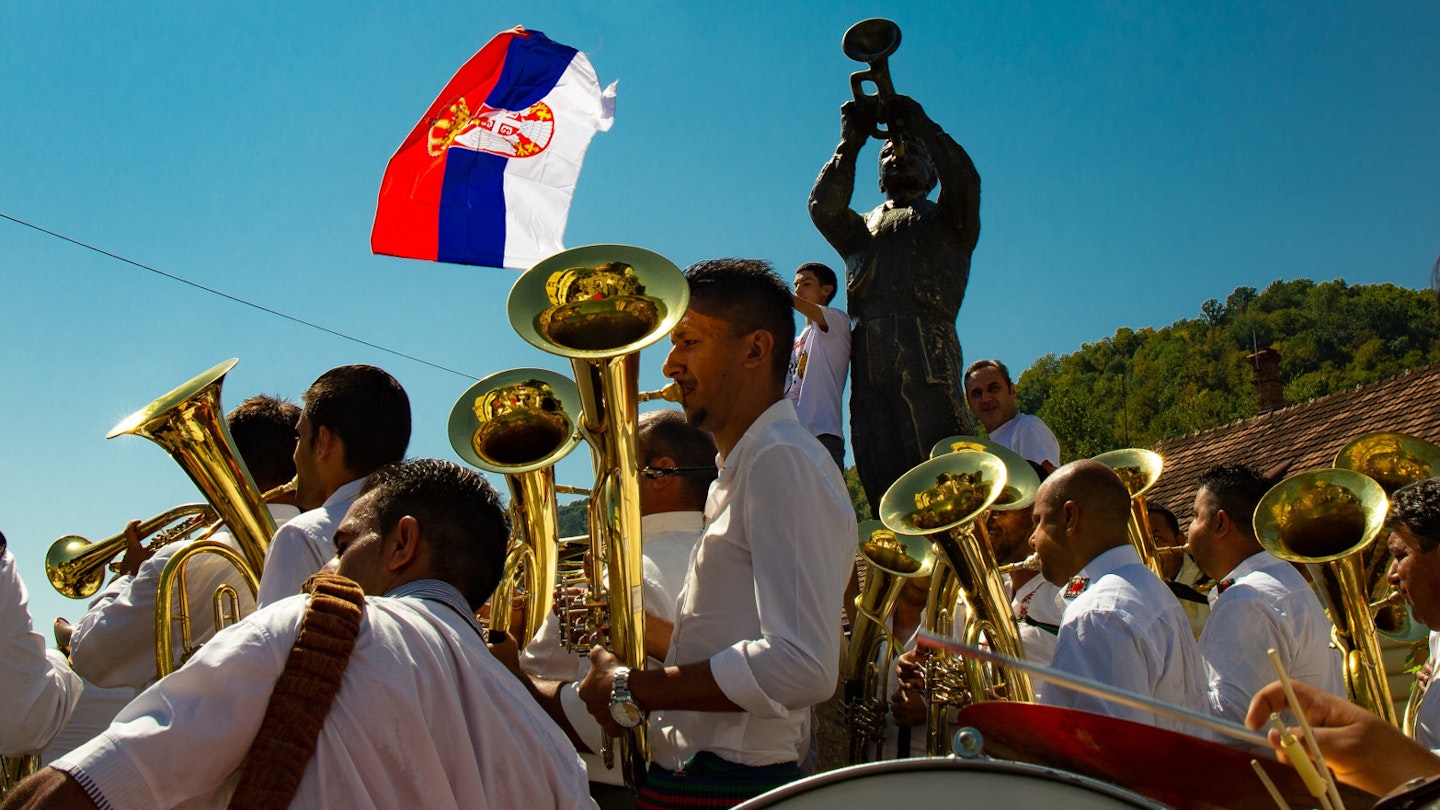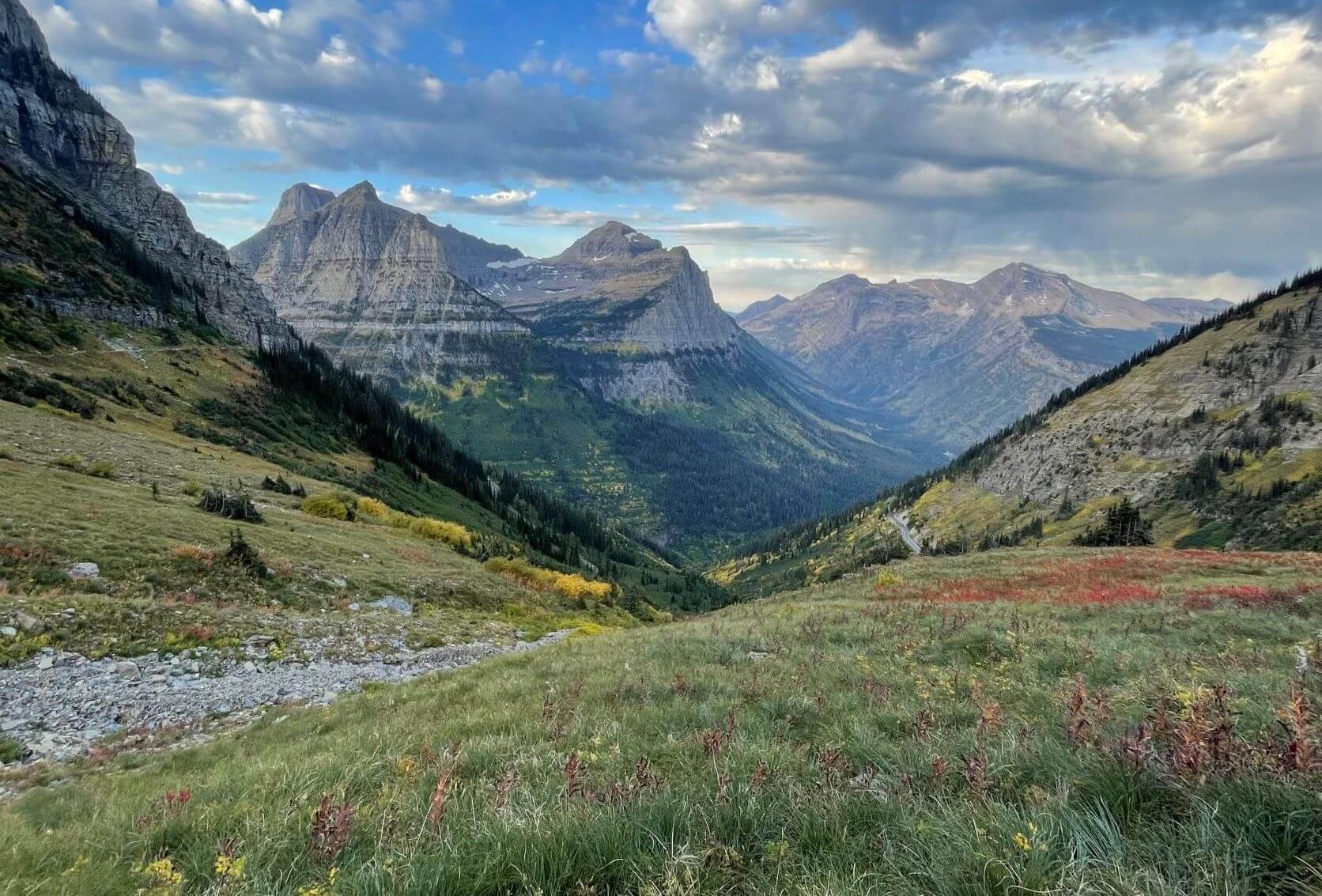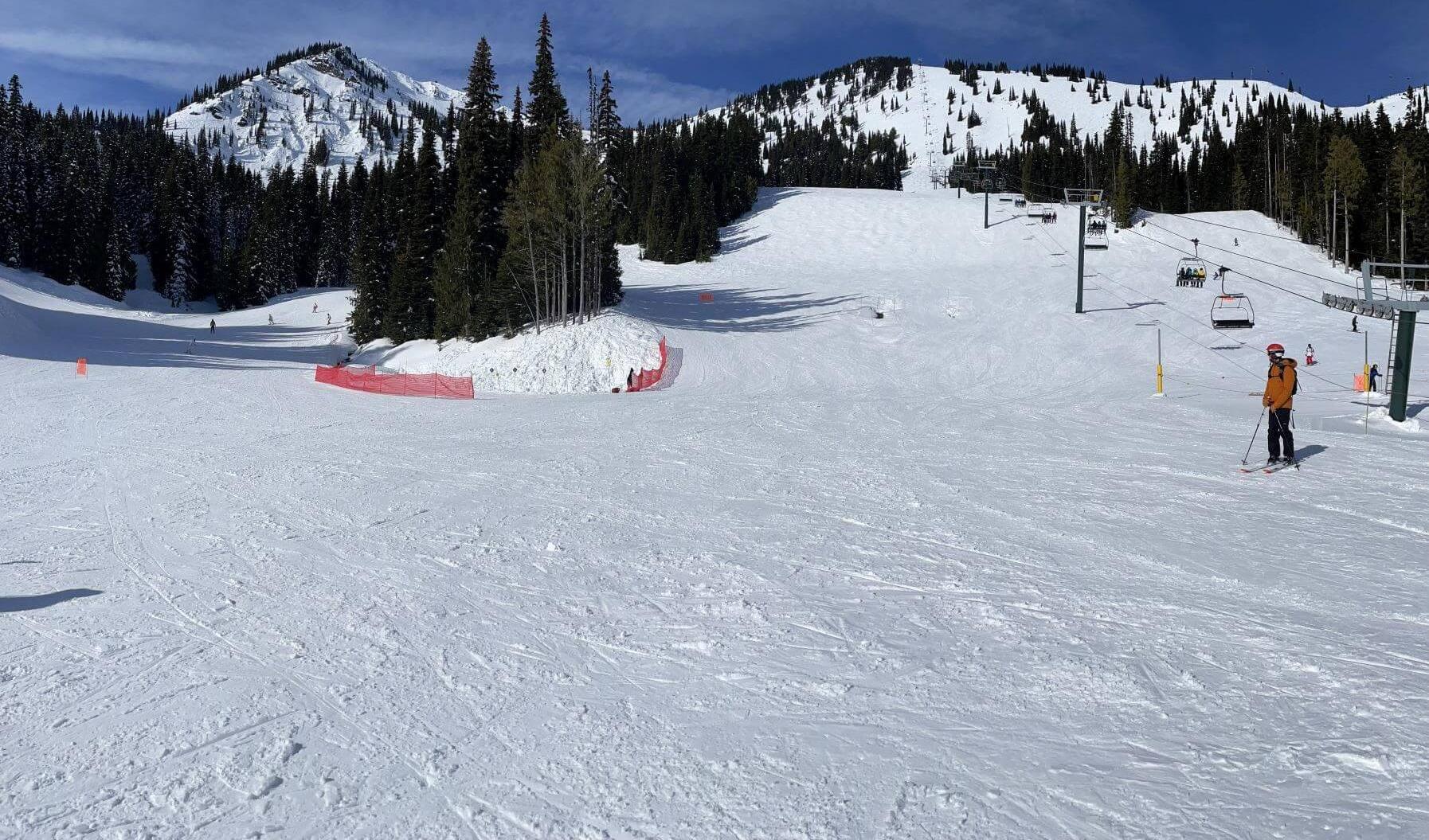Guča Trumpet Festival: A Celebration of Balkan Music
The annual Trumpet Festival (held this year from 9 to 12 August) in Guča, Serbia, combines old European heritage with world-class competition – contagious music with participant endurance. The result is a four-day blur where plates overflow with traditional food, an outdoor party brims with barely controlled energy, and legends are born.

I first heard traditional Balkan truba (trumpet) music at a party years ago. Between soul and funk tracks, the DJ snuck in a number from Boban Marković, horn-player extraordinaire from Serbia. The room stopped as the first notes from his mournful trumpet warbled. Tubas and bass drums began to bubble up in support. Then, in one ecstatic note, melody and rhythm met in a riot of hedonism in which sweat-soaked, ruffle-cuffed tuxedo shirts pressed against cocktail dresses. The instruments shrieked and leapt together, ratcheting the room to frenzied levels – an intoxicating jambalaya of Dixieland brass and the driving, all-night urgency of Roma-spawned backbeats. The song, the DJ said, was a live recording from the Guča Trumpet Festival, where, he assured me, I would eat more, drink more, and listen to more horn music than I thought possible.
That was 15 years ago. I’ve been chasing Guča – and Boban Marković – ever since.

The drive across Serbia’s Dragačevo Region, about three hours south of Belgrade, rolls over an undulating landscape carpeted with beech, oak, and fir trees. Then the dense forests give way to perched villages with manicured vegetable-garden aprons and orchards of sweet cherries, plums, and apricots. As I turned onto the road leading to Guča, a community of about 3000 full-time citizens, the first indication of the trumpet festival and competition – which began nearly six decades ago and draws hundreds of thousands of music devotees from around the world – appeared. A van, with a mattress roped to the roof and brass instruments pressed against the rear window, coughed and lurched up a rise. Its passengers, shoulder-to-shoulder on bench seats, sang with abandon and passed around a clear, label-less plastic bottle.
When I arrived in the village, the mood was still quiet – like the silence before a storm. Instead of boarding up windows, residents on both sides of the Bjelica River were preparing for a different phenomenon: the impending rush of food, alcohol, and people. My first order of business, before the floodgates opened, was to meet with Vukašin Dramlić, a Guča native and the director of the Dragačevo-Guča tourism organisation.

‘I’ve been to every festival for the last 25 years since my grandfather first brought me,’ said Mr. Dramlić from behind his desk. It was 10am. We had already drained two glasses of rakija (local homemade schnapps). He poured a third and explained that during the festival, performances are judged, and awards are presented to categories including best trumpeter, top brass bands, and audience choice. ‘This is a really traditional Serbian festival. But it’s simple: people here love the trumpet. They live for this music. Many people – approximately 150,000 – will show up. When I think about what that means, it gives me goosebumps.’
Before leaving Mr. Dramlić’s office, I asked the question that would become my festival refrain: ‘Is it possible to meet Boban Marković?’ I knew the Trumpet Master was headlining Friday night’s show on the big stage, where thousands pack a field the size of a football pitch. (The title Trumpet Master is bestowed on a player who has won at least three awards at Guča over the years. Marković won ‘first trumpet’ five times between 1988 and 2001.) The tourism director sat back in his chair, and with typical Serbian nonchalance, finished his rakija and said: ‘Yes, don’t worry… go enjoy the festival. It will happen.’

By the time I made it to the Trumpet Museum that afternoon, the festival had changed. Vendors manned tables brimming with nourishment necessary to sustain long periods of drinking and dancing. Roasting pigs rotated on spits next to casserole dishes of ‘wedding cabbage’, platters of grilled vegetables, and bowls of ajvar (sauce made from roasted peppers). People shuttled between beer kiosks, food stations, and dwindling oases of shade beneath trees. The scene was set to the never-waning soundtrack of small guerrilla horn-and-drum orchestras roaming the streets, restaurant patios, and cafes.
‘There were four bands at the competition in 1961,’ Nikola Stojić, one of the founders of the festival, told me outside the museum. According to Stojić, who is 88, the first gathering took place outside the Church of Archangel Gabriel – appropriately. ‘At that event, the judges were crying,’ he continued. ‘We were happy because we had just witnessed the renaissance of Serbian culture. We wanted changes from the cultural life the communists were offering at the time. We wanted to sing and dance to the trumpeters. Who would believe it could grow into something like this?’

I crossed the street, passed the bronze statue of the trubač (trumpeter) in the central square, and ducked into the Central Guča cafe to escape the heat. An orchestra was on the terrace revving the crowd into a frenzy. Every few seconds someone would stand and slap a euro note or a Serbian dinar bill on a musician’s sweaty forehead. For hours, at regular intervals, one band would finish a set and another brass-and-drums ensemble would take their place. Finally, a patron at the next table raised his glass, laughed, held up a receipt and announced: ‘Well, that does it… the ATM is out of money.’
When the sun began to set, the excitement started to build for the upcoming main event: the Boban Marković Orchestra. Guča’s streets emptied as festival-goers began to move en masse to the fairgrounds across the river. I had been given backstage access, but it was up to me to find the trumpet icon’s manager and set up an interview in the three-minute window after the soundcheck and before the show. I was told to stand at side stage and wait.

Marković’s silhouette stepped through the smoke being pumped on stage as part of the pre-show rehearsal. Suddenly the 54-year-old musician from Vladičin Han, in southern Serbia, stood before me – signature fedora, wide smile, shaggy brown hair, and boyish face. I stood and fumbled with the pages in my notebook, immediately cast back to the dance floor 15 years previous.
‘The saying goes that the trumpet sounds better in Guča,’ he told me, taking off his hat and resting it atop a nearby microphone stand. ‘That’s true because everyone here is trying their best. This is a great jumping-off point for players to move into the rest of Europe and the world. But, if you don’t pass Guča….’ He went silent, smiled, shook my hand, grabbed his hat, and disappeared back into the smoke.





